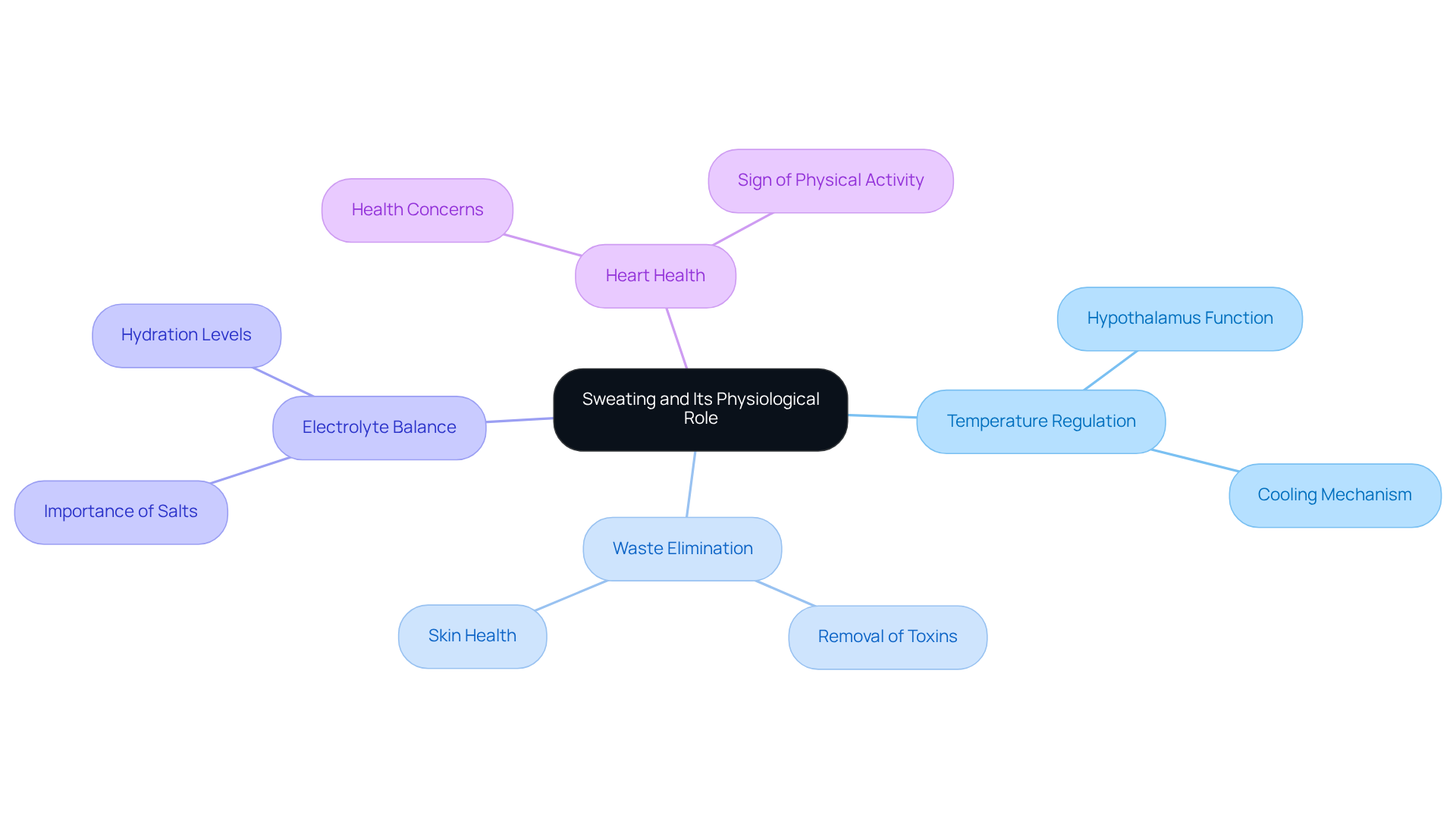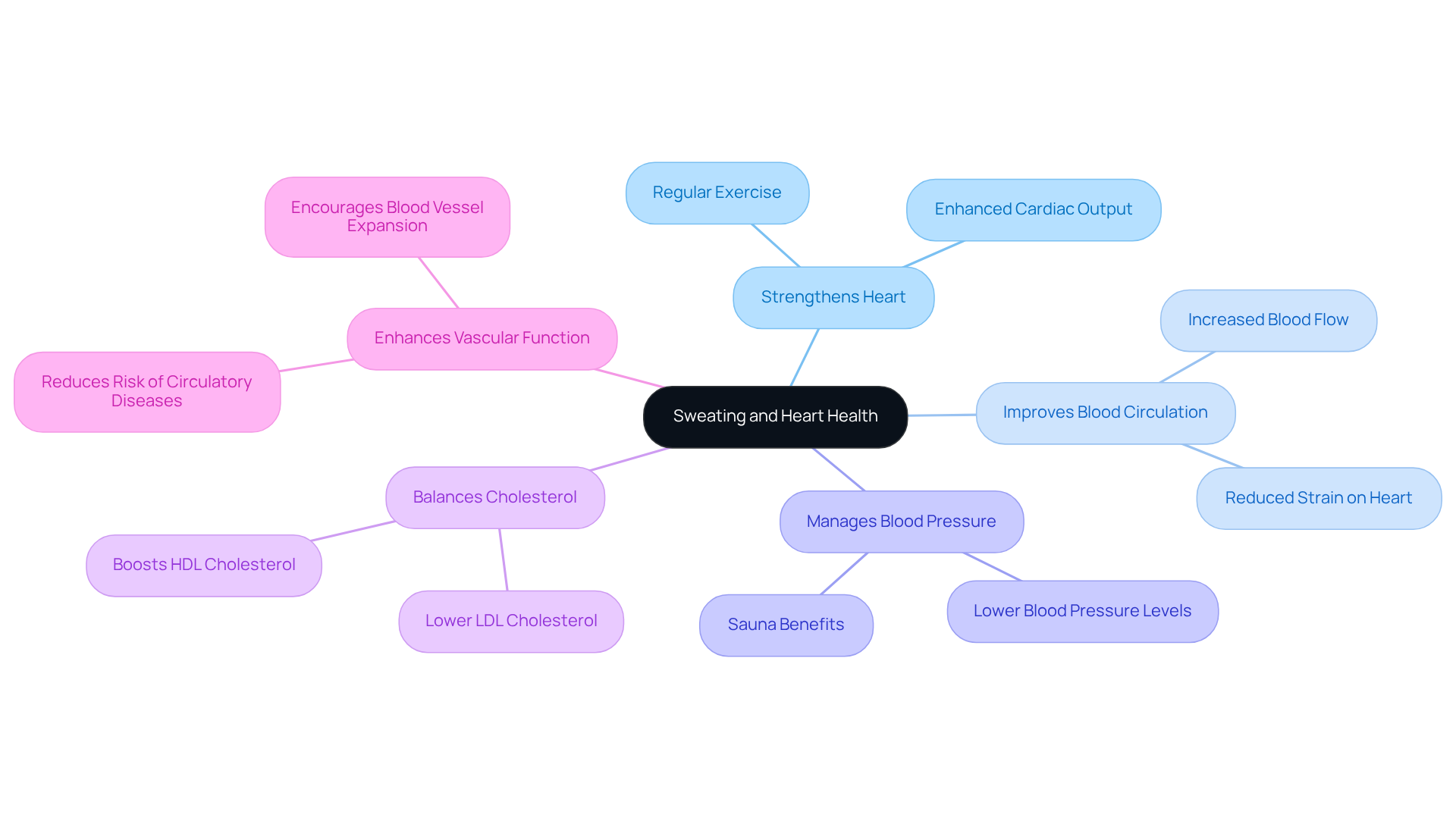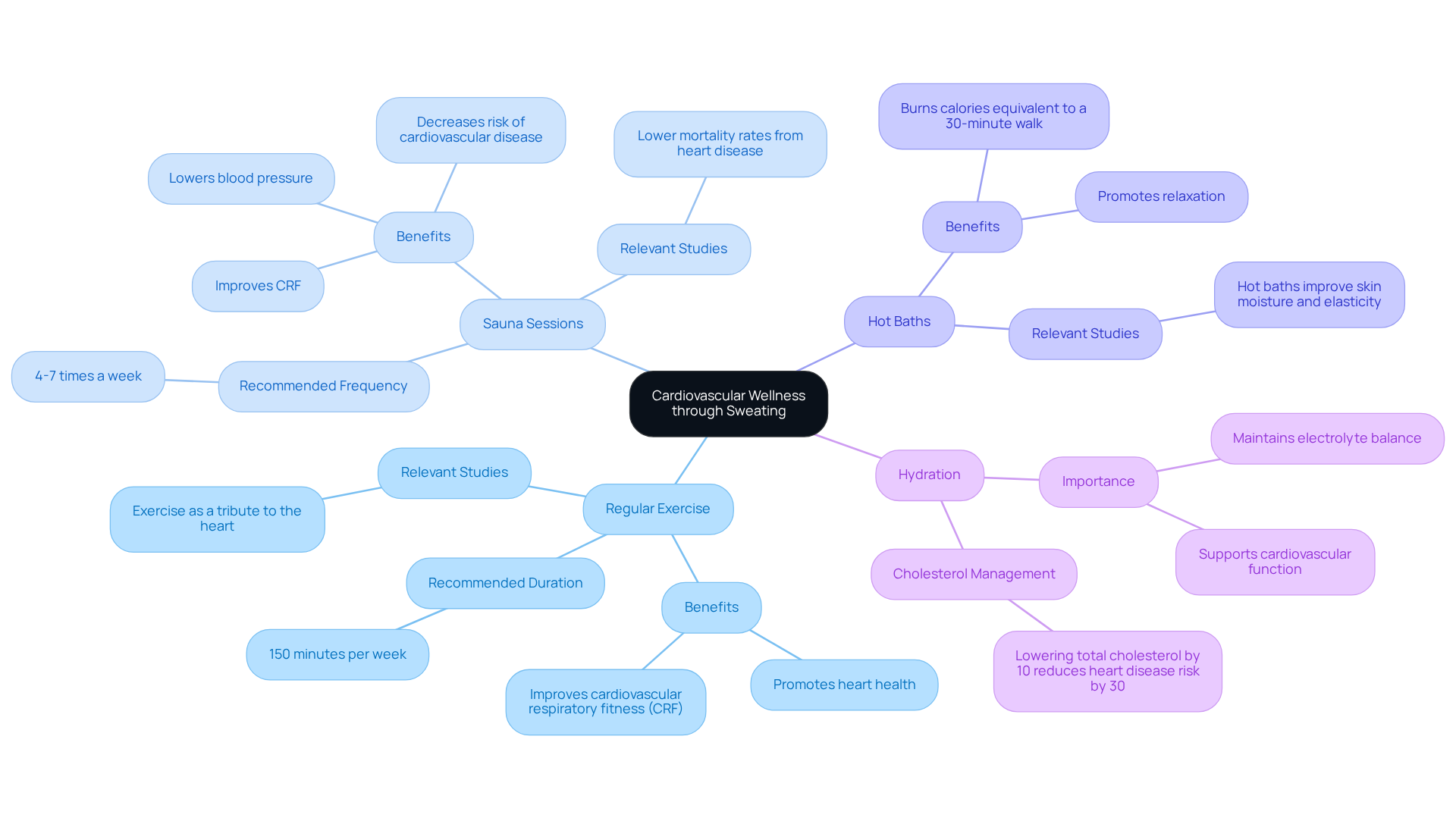


Sweating is often overlooked as just a bodily function, but it plays a vital role in our overall health, especially when it comes to heart wellness. Have you ever considered how this natural process not only cools your body but also supports cardiovascular function, detoxification, and even cholesterol management? This article gently explores the many benefits of sweating, reassuring you that it’s more than just a byproduct of physical exertion.
In addition to this, we’ll delve into the intersection of ancient practices and modern science, uncovering the essential role perspiration plays in nurturing a healthy heart. It’s important to understand that your body has its own way of communicating with you, and sweating can be a significant indicator of your heart health. So, let’s take a closer look together at how this simple act can contribute to your well-being.
Sweating, or perspiration, is more than just a bodily function; it’s a vital process that helps our bodies stay cool and healthy. Have you ever noticed how your body reacts when you exercise or feel stressed? That’s your hypothalamus at work, signaling your sweat glands to release moisture. This fluid, mostly made up of water and salts, evaporates from your skin, helping to cool you down.
But perspiration raises the question of whether sweating is good for your heart, as it does more than just regulate temperature. It also plays a role in eliminating waste and maintaining electrolyte balance, which is crucial for your overall well-being, particularly in understanding if sweating is good for your heart. It’s natural to have concerns about how your body functions, and understanding these processes can help ease any worries you might have.
In addition to this, remember that sweating is good for your heart, as it is a sign that your body is working hard to keep you healthy. If you ever feel anxious about your health or how your body is responding, don’t hesitate to reach out for support. You’re not alone in this journey, and there are caring professionals ready to help you understand your body better.

In traditional Persian medicine, perspiration is seen as a vital therapeutic practice, essential for detoxification and enhancing overall well-being. Methods such as steam baths and diaphoretic herbs are used to encourage sweating, leading to the belief that sweating is good for your heart by improving circulation and supporting heart health. This historical view underscores the long-standing recognition of perspiration as a beneficial process, aligning with modern research that supports the idea that sweating is good for your heart.
Research indicates that regular sauna bathing can lower the risks associated with cardiovascular conditions. This connection emphasizes the relevance of these ancient practices in today’s health management. Moreover, evidence suggests that sweating is good for your heart by helping to clear toxins and waste products, which contributes to better heart function and overall health.
At Amavita, we truly understand the importance of comprehensive cardiovascular care, especially for those at higher risk. Our CardioElite™ program combines advanced imaging and AI technology with personalized methods to enhance cardiac well-being and fill gaps in cardiac care. We are committed to ensuring that our patients receive the most effective treatments available.
However, it’s crucial to prioritize safety. If you have low blood pressure or are pregnant, please consult your physician before using a sauna. Your health and safety are our top priorities, and we’re here to support you every step of the way.

Sweating is more than just a bodily function; it plays a vital role in enhancing your cardiovascular health, raising the question of whether sweating is good for your heart, especially when linked to physical activity. When you engage in regular exercise that makes you perspire, you might ask yourself, 'is sweating good for your heart?' because it strengthens your heart, improves blood circulation, and helps manage your blood pressure. Studies show that those who sweat consistently during workouts tend to have lower levels of LDL cholesterol, often called 'bad' cholesterol, while also boosting their HDL cholesterol, known as 'good' cholesterol. This balance is essential for maintaining a healthy lipid profile.
In addition to this, sweating helps improve vascular function by encouraging blood vessels to expand, which eases the strain on your heart and lowers the risk of circulatory diseases. Have you ever considered the benefits of sauna bathing? Research indicates that frequent sauna users enjoy significantly lower death rates from heart disease and stroke. This underscores the importance of perspiration, whether through physical activity or heat treatment, in supporting heart function and raising the question of whether sweating is good for your heart and preventing heart-related issues.
So, as you think about your health, remember that every drop of sweat contributes to the idea that sweating is good for your heart and is a step towards a healthier heart. Embracing activities that promote sweating raises the question: is sweating good for your heart, and can it be a nurturing way to care for yourself? If you have any concerns or questions about your heart health, don’t hesitate to reach out for support. You’re not alone on this journey.

To harness the benefits of sweating for cardiovascular wellness, it’s important to consider a few effective techniques that can truly make a difference:
Engaging in regular exercise, such as aerobic activities like running, cycling, or swimming, can significantly promote sweating, leading to the consideration of whether sweating is good for your heart. Aim for at least 150 minutes of moderate-intensity exercise each week. This level of activity is linked to notable heart health advantages. As Gene Tunney wisely stated, "Exercise should be regarded as a tribute to the cardiovascular system."
Incorporating sauna sessions into your routine raises the question of whether sweating is good for your heart while promoting cardiovascular function. Research shows that regular sauna use-four to seven times a week-can lower blood pressure and decrease the risk of cardiovascular disease and stroke. In fact, a study found that individuals who utilized the sauna at this frequency had reduced mortality rates from cardiovascular disease and stroke, suggesting that sweating is good for your heart and contributing to overall cardiovascular well-being.
Soaking in hot baths can encourage perspiration and help relax your body, leading to the consideration of whether sweating is good for your heart. A recent study discovered that enjoying a hot bath can burn as many calories as a 30-minute walk, making it a convenient choice for those looking to enhance their heart health.
Hydration: Staying well-hydrated is crucial during perspiration, as it helps maintain electrolyte balance and supports overall cardiovascular function. Adequate hydration improves your body’s ability to perspire efficiently, which is vital for cardiovascular wellness. Moreover, reducing overall blood cholesterol by just 10% can lower the risk of cardiovascular illness by 30%. This highlights the significance of perspiration and physical activity in managing cholesterol levels.
By integrating these practices into your daily life, you can promote heart health and discover if sweating is good for your heart while enjoying its physiological benefits. Notably, for those with low cardiovascular respiratory fitness (CRF) levels, spending just 15 minutes in the sauna after exercise can improve CRF more than exercise alone. This further emphasizes the benefits of combining these techniques. Remember, taking small steps towards your heart health can lead to significant improvements, and you’re not alone on this journey.

Sweating is more than just a way to cool down; it’s a vital process that can significantly enhance your cardiovascular health. By exploring the benefits of sweating, we can see how it positively impacts heart function and overall well-being. Understanding these aspects not only eases worries about our bodies but also highlights the importance of engaging in activities that encourage sweating, nurturing our heart health in the process.
Key insights reveal that sweating helps detoxify the body, improves circulation, and supports a balanced lipid profile - all crucial for a healthy heart. Traditional practices like sauna use and exercise, backed by modern research, show that regular sweating can lower the risk of cardiovascular diseases. This evidence encourages us to incorporate effective sweating techniques into our daily lives, such as aerobic exercises and sauna sessions, to enjoy the heart health benefits they offer.
Recognizing the role of sweating in promoting cardiovascular wellness empowers us to take proactive steps in managing our health. By embracing practices that encourage perspiration, we can make meaningful strides toward improving our heart health. This journey not only deepens our understanding of our bodies but also inspires us to prioritize our well-being, paving the way for a healthier future.
So, why not start today? Consider how you can integrate more activities that promote sweating into your routine. Remember, every little step counts, and you’re not alone on this journey to better health.
What is sweating and why is it important?
Sweating, or perspiration, is a vital process that helps regulate body temperature, eliminates waste, and maintains electrolyte balance, contributing to overall health.
How does sweating help regulate body temperature?
When you exercise or feel stressed, the hypothalamus signals sweat glands to release moisture. This fluid evaporates from the skin, which cools the body down.
Does sweating have any benefits for heart health?
Yes, sweating is good for your heart as it indicates that your body is working hard to maintain health and regulate temperature.
What components make up sweat?
Sweat is primarily composed of water and salts.
What should I do if I have concerns about my sweating or health?
If you feel anxious about your health or how your body is functioning, it’s advisable to reach out for support from caring professionals who can help you understand your body better.